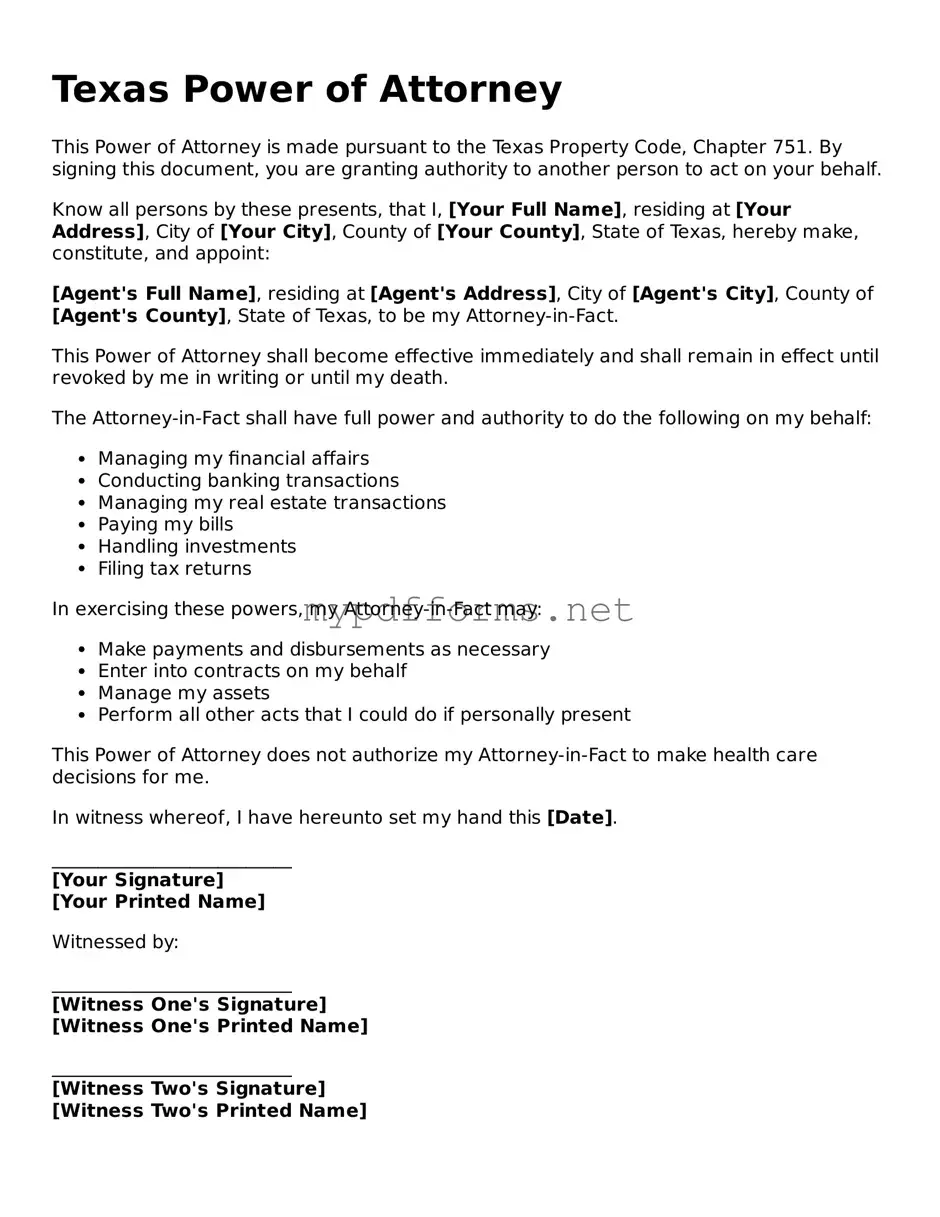A General Power of Attorney is a document that grants someone the authority to act on another person's behalf in a wide range of matters. Similar to the Texas Power of Attorney, it allows the appointed agent to manage financial transactions, make legal decisions, and handle various affairs. The key difference lies in the scope of authority; a General Power of Attorney is often broader and can cover all aspects of a person's life unless specifically limited by the principal. This document is particularly useful for individuals who want to ensure that their affairs are managed comprehensively when they are unable to do so themselves.
The process of handling unclaimed funds can be complex, but understanding the necessary steps is crucial for businesses to navigate this obligation efficiently. For those looking to report unclaimed assets, utilizing the Ohio Unclaimed form can provide the necessary framework to ensure compliance with state regulations and facilitate the recovery of lost funds. By accurately completing this form, companies can not only disclose unclaimed funds but also indicate the absence of such assets, thus fulfilling their responsibilities under the law.
A Durable Power of Attorney is another document that shares similarities with the Texas Power of Attorney. What sets it apart is its durability; it remains effective even if the principal becomes incapacitated. This means that the agent can continue to make decisions on behalf of the principal when they are unable to communicate their wishes. The Texas Power of Attorney can also be durable if it includes specific language indicating that it remains in effect despite the principal's incapacity, making it an essential tool for long-term planning.
A Medical Power of Attorney focuses specifically on healthcare decisions. Like the Texas Power of Attorney, it allows an appointed agent to make medical choices on behalf of the principal. This document is crucial when a person is unable to express their medical preferences due to illness or injury. While the Texas Power of Attorney can include healthcare decisions, a Medical Power of Attorney is specifically tailored to address medical situations, ensuring that the agent can make informed choices regarding treatments and procedures.
A Living Will is similar to the Texas Power of Attorney in that it addresses the principal's healthcare preferences. However, it differs in that it outlines specific wishes regarding end-of-life care and medical treatments. While the Texas Power of Attorney allows an agent to make decisions, a Living Will communicates the principal's desires directly. This document is particularly important for individuals who want to ensure their preferences are honored when they cannot express them, providing clarity for both family members and healthcare providers.
A Revocable Trust can also be compared to the Texas Power of Attorney, as both documents allow for the management of assets. A Revocable Trust holds assets and specifies how they should be distributed upon the grantor's death. While the Texas Power of Attorney grants authority to manage assets during the principal's lifetime, a Revocable Trust provides a structured way to handle assets after death. Both documents serve to protect the principal’s interests but operate in different contexts and timelines.
An Advance Directive combines elements of both a Living Will and a Medical Power of Attorney. It provides instructions regarding medical treatment preferences and designates an agent to make healthcare decisions. Similar to the Texas Power of Attorney, it ensures that an individual's wishes are respected when they cannot communicate. This document is particularly beneficial for those who want to ensure their medical choices align with their values, even if they cannot express them at the time of treatment.
A Financial Power of Attorney is another document that parallels the Texas Power of Attorney, focusing specifically on financial matters. This document allows an agent to handle banking, investments, and other financial transactions on behalf of the principal. While the Texas Power of Attorney can encompass both financial and healthcare decisions, a Financial Power of Attorney is exclusively concerned with monetary affairs, making it essential for individuals who want to ensure their financial matters are managed effectively.
A Special Power of Attorney is a more limited form of power of attorney that grants authority for specific tasks or transactions. Similar to the Texas Power of Attorney, it allows an agent to act on behalf of the principal, but its scope is narrower. This document is useful for individuals who need someone to handle a particular matter, such as selling property or managing a specific investment, without granting broad authority. It provides a way to delegate responsibility while maintaining control over other aspects of one’s affairs.

